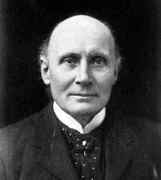Person: Whitehead, Alfred North

Alfred Whitehead was a mathematician and philosopher who collaborated with Bertrand Russell on _Principia Mathematica _ (1910-13).
Mathematical Profile (Excerpt):
- Whitehead showed a special gift for mathematics and was allowed to devote extra time to that subject in his final school year, dropping composition and reading of Latin poetry to make way for the extra mathematics.
- In 1879 Whitehead took the entrance examinations for Trinity College, Cambridge, and he won a scholarship.
- As the holder of a scholarship, Whitehead lived in College.
- Whitehead won a second scholarship, a College Foundation, and so by the time he entered his second year of study he was quite well off.
- Thomson and Forsyth were appointed to examine Whitehead and, much to his surprise, he won one of the five scholarships available that year.
- After winning the Fellowship, Whitehead was appointed to an assistant lectureship.
- Despite his poor publication record, Whitehead was promoted to a Lectureship at Cambridge in 1888.
- The younger of the two sons, Eric Alfred Whitehead, became a second Lieutenant in the Royal Flying Corps (which was set up in 1912 and later became part of the Royal Air Force) and died while on a flying patrol in France in 1918.
- Other changes in Whitehead's life took place around the time of his marriage.
- However one has to understand the complex person that Whitehead was, and in particular the interest which he was developing in philosophy and metaphysics.
- We should return to the story of the Treatise on Universal Algebra which Whitehead worked on for much of the 1890s.
- Perhaps the first comment we should make is that the work is not on the modern topic of universal algebra for the term 'universal algebra' had quite a different meaning to Whitehead.
- Although Whitehead became very productive after his marriage, he never considered himself a creator of new areas of mathematics, but rather as a developer of ideas introduced by others.
- In 1894 Whitehead became an examiner for the Mathematical Tripos.
- Whitehead is perhaps best known for his collaboration with Bertrand Russell.
- We shall give details of this collaboration below, but first we shall complete the details of Whitehead's career.
- This explanation of his move is almost certainly basically correct and this indeed was the motivation behind Whitehead's thinking; on the face of it, however, rather different and dramatic events ended his association with Cambridge.
- Whitehead did everything he could to ensure that Forsyth kept his Fellowship.
- The decision as to whether he could keep the Fellowship was taken by the Council of Trinity and Whitehead, as a member of that Council, argued strongly that Forsyth should be allowed to remain a Fellow of Trinity.
- Whitehead was outvoted on the Council, however, and shortly after this he resigned his Senior Lectureship and his Fellowship.
- The Council then voted that Whitehead had served as a Lecturer for over 25 years (the maximum period) so must leave his post.
- Whitehead's appointment as Senior Lecturer still had three years to run but he did not stay to argue his case.
- Bertrand Russell entered Cambridge in 1890 and immediately Whitehead, as examiner for the entrance examinations, spotted Russell's brilliance in his examination papers.
- Whitehead argued that Russell should be awarded a more prestigious scholarship than his marks would have merited and indeed this was agreed.
- When Russell was in his second year as an undergraduate he was taught by Whitehead.
- At the time they began collaborating, Whitehead was working on his article Memoir on the algebra of symbolic logic while Russell was close to finishing the first draft of his Principles of mathematics.
- Whitehead was planning a second volume of Treatise on Universal Algebra but both their plans were somewhat disrupted in 1901 when Russell discovered his famous set theory paradox.
- After the initial worry over the paradox they joined forces on Volume 2 of Russell's work so, by 1903, Whitehead was working simultaneously on two different second volumes.
- Their joint work attempted to construct the foundations of mathematics on a rigorous logical basis and it was carried out with Russell as the philosopher on the project and Whitehead as the mathematician.
- Working with Russell did not occupy Whitehead completely for he continued to produce work of his own.
- As the Principia Mathematica neared completion, Whitehead turned his attention to the philosophy of science.
- In The Principle of Relativity (1922), Whitehead presented an alternative to Einstein's views.
- Whitehead's most important book, Process and Reality (1929), took this theory to a level of even greater generality.
- Whitehead received many honours throughout his career.
Born 15 February 1861, Ramsgate, Isle of Thanet, Kent, England. Died 30 December 1947, Cambridge, Massachusetts, USA.
View full biography at MacTutor
Tags relevant for this person:
Origin England, Set Theory
Mentioned in:
Chapters: 1
Motivations: 2
Parts: 3 4 5
Thank you to the contributors under CC BY-SA 4.0! 

- Github:
-

- non-Github:
- @J-J-O'Connor
- @E-F-Robertson
References
Adapted from other CC BY-SA 4.0 Sources:
- O’Connor, John J; Robertson, Edmund F: MacTutor History of Mathematics Archive
